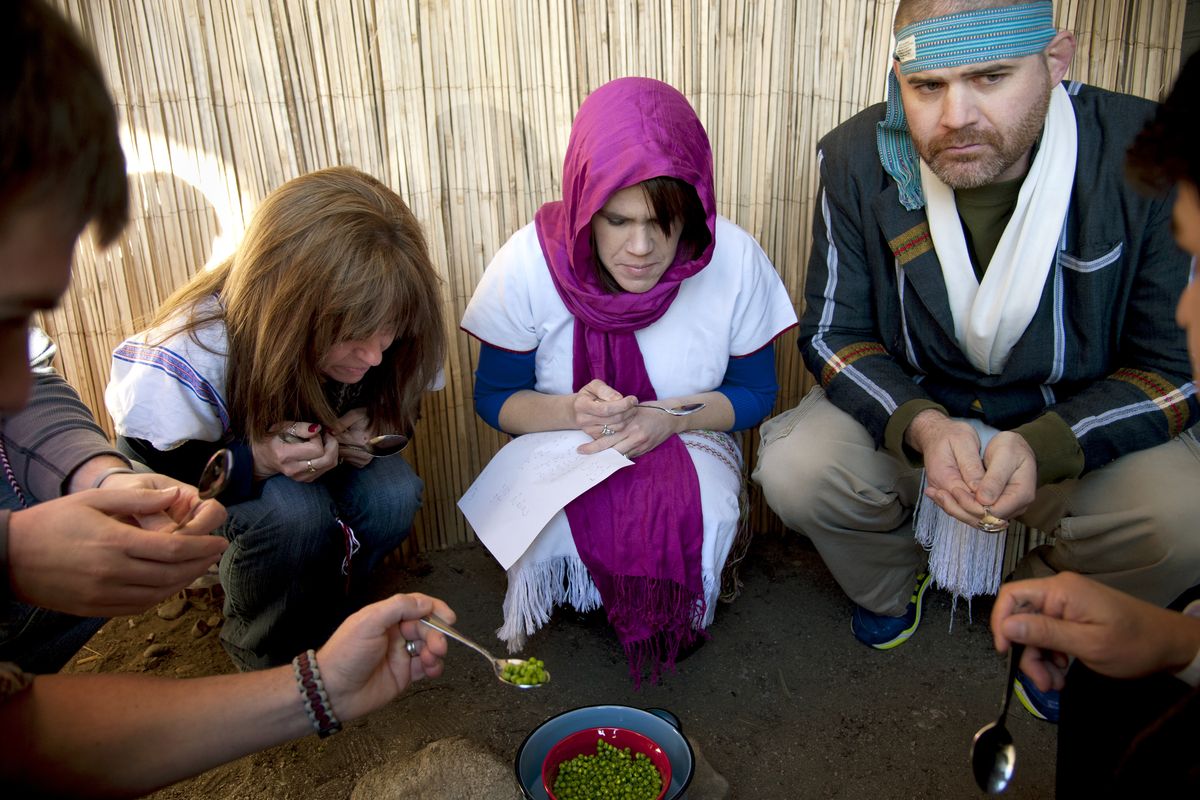Exercises give a glimpse into refugees’ world

Tim Cruger thought he had the book memorized.
He knew his name, where he was from, and all of his family members’ names and ages. What more could he possibly need to know?
As it turned out, much, much more.
Dressed as if he were an Iraqi refugee, Cruger, a Whitworth University graduate student, had to convince an interviewer that his family should be selected to go to America.
His fake family, that is.
The interview was an exercise in empathy for refugees who are trying to win the resettlement lottery. Held by the local office of World Relief, an international Christian organization, the interview was part of a simulation designed to make Americans aware and appreciative of the resettlement process.
“The most frustrating part was getting questions fired at you that you didn’t know the answer to,” Cruger said.
Which refugee camp did you come from? How much money did your wife have to pay when you were kidnapped? Why can’t you go home?
The interviewer was World Relief Spokane Director Mark Kadel, disguised as an immigration official. Hiding behind a laptop, Kadel fired question after question, refusing to crack a smile even when the participants couldn’t help but laugh.
In another group, pretending to be from Myanmar, Troy Hughes said he finally got a smile out of Kadel when Hughes – who was supposed to be a preacher – started singing “Kumbaya” after being asked to sing a hymn.
“I got worked in there,” Hughes said. “You’re trying to remember everything, there’s pressure, he’s telling you to hurry up, asking you to translate for your family members who can’t speak English.”
The pressure didn’t let up in another part of the simulation: the classroom.
World Relief worker Sajida Nelson, an Iraqi woman who once translated for the U.S. Army, taught all the participants an Arabic lesson – in Arabic.
For her, it’s a chance to share a bit of her culture and what she went through in classes as a student.
“I see it really fascinating to see other people who don’t know the language and sometimes how hard it is,” Nelson said. “Some people are really good at it, they pick it up. But a lot of them are just, ‘You said what?’ ”
Other stations of the simulation involved medical checks and a day in the life at a refugee camp. In the camp session, a man named Laxman Khadka took the group outside to a small plot of dirt and showed them how he would cook food at the camp, and how little food he received. Khadka spent 20 years in a refugee camp, and everything he told the students mirrored what he went through.
Because all of the simulation participants were Whitworth graduate students working toward a school principal certification, the classroom sessions held extra meaning.
John O’Dell, a participant who also teaches at Ferris High School, said he has a refugee student in one of his classes. That student’s family was one of the stories the participants had to emulate.
O’Dell said his view of his student and what he has been through was changed by the simulation.
“That’s the thing that really struck me, is how intimidating the process is and how frightening it is,” O’Dell said. “The people that have made it and are being successful, it’s kind of like they’re heroes. They’ve done something that is worthy to be celebrated and acknowledged, and I think some people really misunderstand that.”